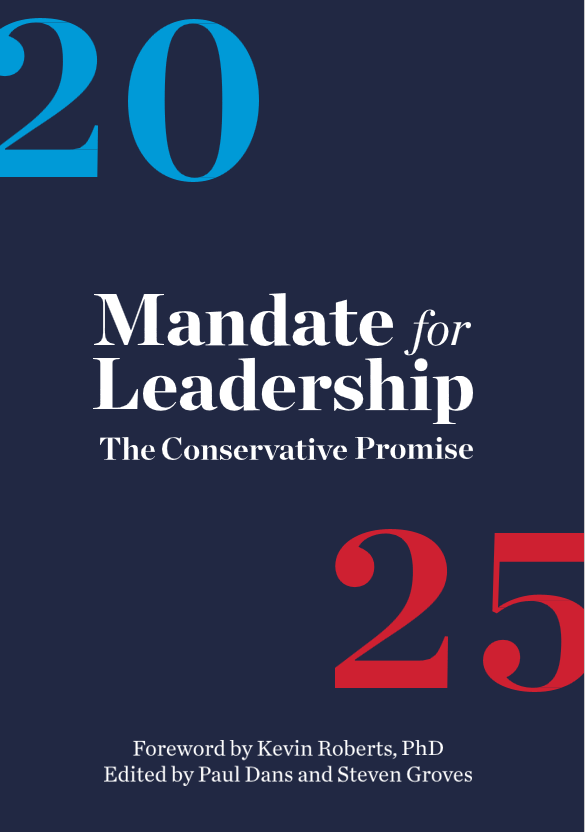Let discuss because I believe in healthy dialogue around issues that impact my family and the surrounding community. Let’s put aside the emotions and address facts.

‘Today, the American family is in crisis. Forty percent of all children are born to unmarried mothers, including more than 70 percent of black children . There is no government program that can replace the hole in a child’s soul cut out by the absence of a father.’- page 36- Project 2025
The Heritage Foundation said seventy percent of black children are born to unmarried mothers. According to multiple record keeping entities such as the National Vital Statistics; that is accurate.
Anyone reading this document should have annotated– what is the root cause for such high numbers of children being born to unmarried black mothers?
If you didn’t, don’t worry- I got you:
Historical Context:
-
- Slavery and Post-Slavery Effects: The legacy of slavery has had a profound impact on the Black family structure. Families were often forcibly separated. This lead to a historical disruption of family bonds. After slavery, the lack of economic opportunities and systemic discrimination further hindered the ability to form stable family units.
- Jim Crow Laws: These laws enforced racial segregation and perpetuated economic and social disadvantages for Black Americans, contributing to ongoing family instability.
Are we going to pretend we don’t know who was the racial group that benefited from slavery in the United States?
As you read this, multiple states – ie Florida; don’t even want their children to learn about slavery at all. Wasn’t slavery the reason there was a civil war? Or will they teach them the truth that the reason the civil war was fought was over money? Slaves were property. The south needed the free labor to cultivate their cash crops of cotton and tobacco. Lincoln just needed the bodies to fight for his side. He promised freedom in return for their loyalty. Sounds like an economic reason to me.
Economic Factors:
- Poverty and Unemployment: Black communities historically face higher rates of poverty and unemployment. Economic instability can lead to higher rates of single motherhood as financial strain can affect family cohesion.
- Wage Disparities: Even when employed, Black individuals often earn less than their white counterparts, leading to economic pressures that can impact family structures.
If you are aware that white women are paid less than their white counter parts, what makes you believe bodies of color are paid more than white women?
Educational Disparities:
- Access to Education: Lower access to quality education in many Black communities can lead to lower educational attainment, which in turn affects economic opportunities and stability.
- Teen Pregnancy: Higher rates of teen pregnancy are often linked to lower educational attainment and can contribute to higher rates of single motherhood.
Its 2024- Ruby Bridges is still alive. Google her name. I guarantee you’ve seen her picture before.
Incarceration Rates:
- Mass Incarceration: The disproportionately high incarceration rates of Black men due to systemic biases in the criminal justice system remove a significant number of potential fathers from households, contributing to single-parent families.
- Criminal Justice Policies: Policies such as the War on Drugs have disproportionately affected Black communities, leading to higher incarceration rates and family disruption.
The government- both state and federal were not set up to mass incarcerate white bodies. Only black and brown ones. Take the time to read my personal take on the book the New Jim Crow; Mass Incarceration in the Age of Colorblindness by Michelle Alexander
Social and Cultural Factors:
- Changing Family Dynamics: There has been a cultural shift towards greater acceptance of single motherhood across all races. However, this shift, combined with the other factors listed, may have a more pronounced effect in the Black community.
- Support Networks: The role of extended family and community support in Black culture can sometimes mitigate the challenges of single motherhood but does not eliminate the systemic issues leading to it.
Systemic Discrimination:
- Racial Discrimination: Ongoing racial discrimination in housing, employment, and healthcare exacerbates economic and social instability.
- Healthcare Disparities: Access to and quality of healthcare, including reproductive health services, can influence family planning and child-rearing decisions.
These factors are interrelated and collectively contribute to the higher percentage of single mothers in the Black community. Addressing this issue requires multifaceted solutions that tackle economic inequality, systemic discrimination, and provide better support for education and family planning services.
Project 2025 isn’t about putting this country back together. Its about making sure old, white men stay in power and return to the “good ol’ days”. <– #IYKYK
You can continue reading about the causes in the below data sources:
Historical Context:
- “The Legacy of Slavery and African American Family Structure” by R. B. Hill
- “Jim Crow’s Legacy: The Lasting Impact of Segregation” by The Center for American Progress
Economic Factors:
- “The Economic State of Black America in 2020” by The Joint Economic Committee Democrats
- “Race and Economic Opportunity in the United States: An Intergenerational Perspective” by Raj Chetty, Nathaniel Hendren, Maggie Jones, and Sonya Porter
Educational Disparities:
- “Race and Education Inequality Statements & Speeches” by The American Bar Association
- “Teen Pregnancy Among Young Women of Color” by The National Campaign to Prevent Teen and Unplanned Pregnancy:
Incarceration Rates:
- “The Impact of Incarceration on African American Families” by Angela J. Hattery and Earl Smith:
- “The New Jim Crow: Mass Incarceration in the Age of Colorblindness” by Michelle Alexander:
Social and Cultural Factors:
- “The Changing Face of Black Families: Diversity, Conflict and Change” by The National Council on Family Relations:
- “Support Networks Among Single Black Mothers” by The Urban Institute:
Systemic Discrimination:
- “Discrimination in America: Experiences and Views of African Americans” by NPR, the Robert Wood Johnson Foundation, and the Harvard T.H. Chan School of Public Health:
- “The Racial Wealth Gap: Why Policy Matters” by The Center for American Progress: T